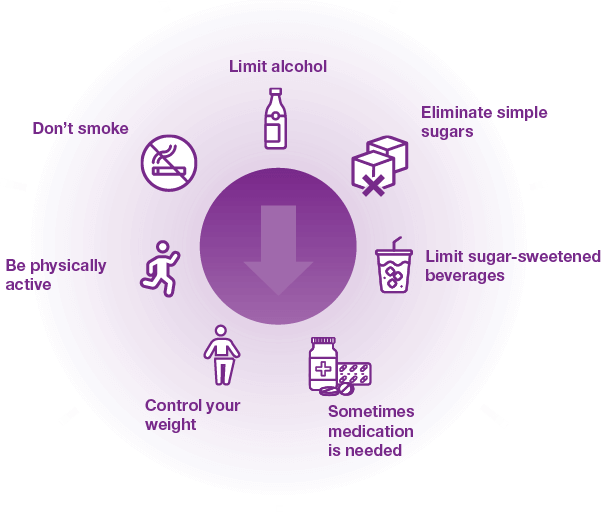What are the risks of triglycerides?
|
Triglycerides |
Before we get into the risks, let’s first look at triglycerides. Simply put, triglycerides are a type of fat in the blood that comes from the foods we eat.1 Knowing how much is in the blood is an important measure of heart health. |
Both cholesterol and triglycerides are separate types of lipids in the blood.2 Triglycerides help the body produce energy, while bad cholesterol helps with the production of hormones and to build cells.1,2
What causes high triglycerides?
- When you eat food, your body uses up the calories it needs, then turns additional calories into triglycerides
- Triglycerides are stored in fat cells
- Between meals, your hormones release triglycerides for energy
- If you consume more calories than your body needs (especially foods high in carbohydrates and fats), you may develop high triglycerides2
- Certain lifestyle factors may contribute to high triglycerides, including:3
Additionally, certain medications, thyroid dysfunction, diabetes, and liver or kidney disease can all elevate triglyceride levels.1
What can you do to lower your triglyceride levels?3

What are the risks of having high triglycerides?
- High triglyceride levels have been associated with liver and pancreas problems4
- High triglycerides can present in other conditions, like high blood pressure, diabetes, obesity, high levels of bad cholesterol, and low levels of good cholesterol4
- These conditions may increase the risk of heart disease and stroke2
- It hasn’t been determined which of these conditions are caused by triglycerides alone4
How do you know if you have high triglycerides?
The recommended way to find out if you have high triglycerides is through a blood test called a lipoprotein profile. Working with your doctor by taking a simple blood test can help you determine if your triglycerides are high.1